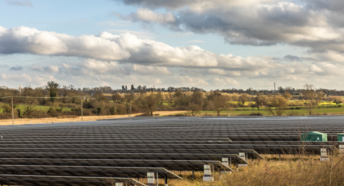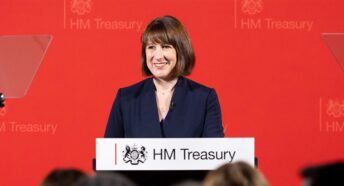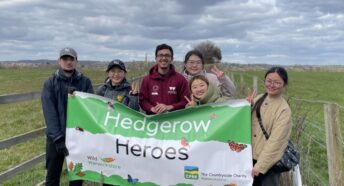2023: CPRE’s impact
For CPRE, 2023 has been a year of embracing change and exploring familiar territory farther than we ever have in the past.
From our campaigning work on the ground with local groups to our lobbying work in parliament, we have pushed for a beautiful countryside for now and the future. We couldn’t have done it without you, so thank you for your support. Together, this is what we’ve achieved this year.
Conquering hedgerows
After almost two years into our 40by50 hedgerow campaign, 2023 welcomed us with the government’s announcement of new hedgerow planting targets. Though not as bold as we hoped for, we celebrated this step forward to re-establish the country’s hedgerow network. CPRE has continuously championed the protection and expansion of hedgerows – the UK’s largest nature reserve. Winning the top prize at the 2023 Charity Awards, this year those efforts were recognised with a badge of honour.
We didn’t stop there; with the third phase of the Hedgerow Heroes project reaching new heights with nine projects across the country. Restoring and regenerating hedgerows has been a priority for all local CPRE groups involved, but it is the passion and enthusiasm of volunteers and community members that allowed them to deliver incredibly positive outcomes for local communities.
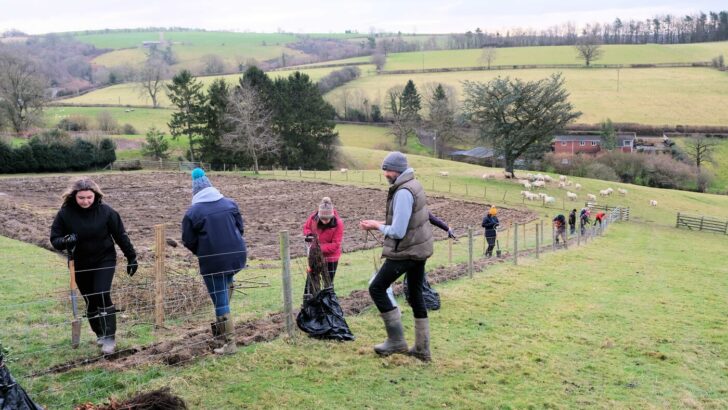
Helping people connect with nature and care for the countryside has been a key feature of this summer with our Hedgelife Help Out initiative. Our citizen science project not only gave us great insight into the health of our hedgerows but also revealed a positive impact on participants’ wellbeing.
We’ve been counting stars…
Every year we carry out Star Count, the largest annual citizen project of its kind, and it helps us create a map of how light pollution affects different parts of the country. Star Count 2023 was one of our biggest to date, with almost 4000 people across the country taking part. This year we found that only 5% of people in the UK can experience the beauty of a starlit sky. On top of that, over half of the population reported that light pollution hinders their visibility of the night sky.
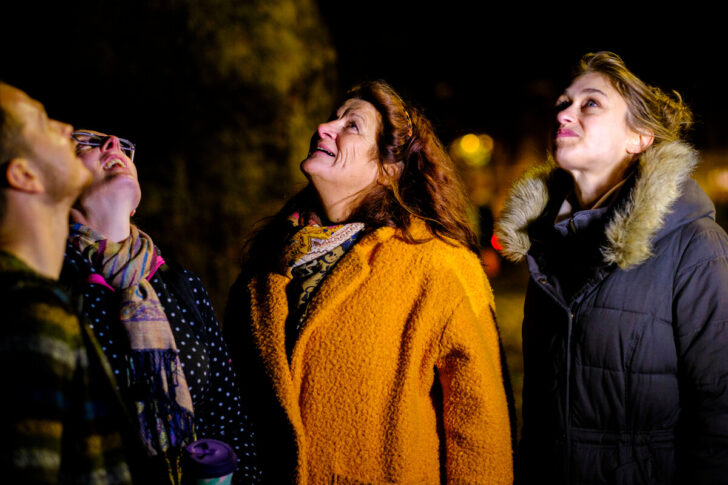
We believe that the night sky is a fundamental part of nature, and that’s why we’re calling for better policies to reduce light pollution. For this very reason, our dark skies campaigner, Emma Marrington, gave evidence early in the year in the House of Lords Science and Technology Committee and shared CPRE’s recommendations to control light pollution through national and local planning policy.
Star Count has been paused for the time being but that does not mean our work is done. CPRE will keep campaigning for truly dark, free of light pollution, starry nights in the countryside.
The beginning of a Rooftop Revolution
With warmer summers, colder winters and newly emerging crises, the climate emergency is by far the biggest threat to the countryside. But it’s not all gloom and doom. With a solid renewable energy initiative, we can prevent the worst effects of climate change and protect our precious rural areas.
That’s why this spring we launched our Rooftop Renewables campaign alongside our report ‘Shout from the rooftops: delivering a common-sense solar revolution’. This brand-new report featuring research by the University College London Energy Institute revealed that half of government targets towards net zero can be achieved through rooftop solar in car parks and warehouses. We call it a common-sense solution because not only it is one of the cheapest and fastest ways to decarbonise, but it also overcomes issues surrounding appropriate land use and energy costs.
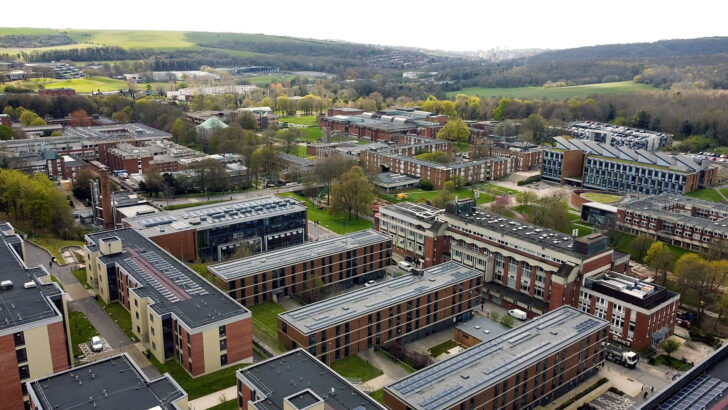
Our rooftop solar campaign and report launched at a conference that explored the potential of rooftop solar in the context of the current energy, climate, and cost-of-living crisis. We welcomed an educational panel discussion and a debate featuring some big names in the energy sector that generated great conversations surrounding our campaign.
We hit the ground running as shortly after our campaign went live, the government announced a Solar Taskforce to drive forward the deployment of solar energy. With almost 30000 signatures in our petition and 34 Rooftop Solar Champions being a voice for solar in parliament, we celebrate our wins as we take our campaign further into election season.
(Green) Belting out solutions
Towards the end of the summer as we headed into autumn, we produced some impactful research underpinned by our belief that the countryside is a key solution to the climate crisis and that local communities must be at the heart of the discussion.
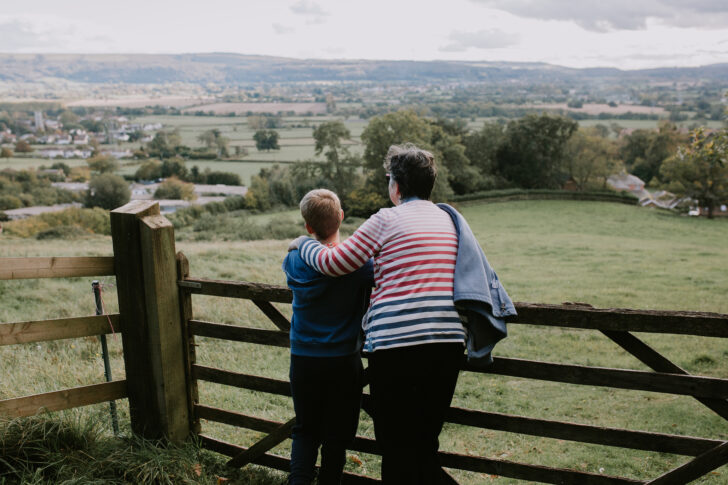
Our ‘State of the Green Belt 2023‘ report revealed that the benefits of the Green Belt go beyond protecting 12.6% of England’s land area from development. As the countryside next door for over 30 million people, it provides a space to interact and connect with nature which plays an important role in improving people’s mental, social and physical well-being. Over half of it consists of agricultural land which can improve food security and encourage self-sufficiency in the nation. On a larger scale, the Green Belt houses woodland and wetlands which can protect urban areas from floods and droughts.
Though the Green Belt policy is overall effective, we found that the wrong homes are being built in the wrong places for the wrong people, meaning that the needs of local people are not being met. Nevertheless, its potential is being overlooked and CPRE believes it can deliver more in the future. Our report is calling for better integrated planning, farming and forestry policies as well as a commitment from all political parties to protecting the Green Belt in the long term.
Local Green Spaces
On a similar note, our 2023 ‘Local Green Spaces‘ report highlighted the importance of green spaces for local communities. It found that there has been an increase in Local Green Space (LGS) designations – that is, a Green Belt-like protection that prevents the loss of the space to construction. However, our research also revealed that areas with the highest levels of deprivation also tend to have the least LGS designations.
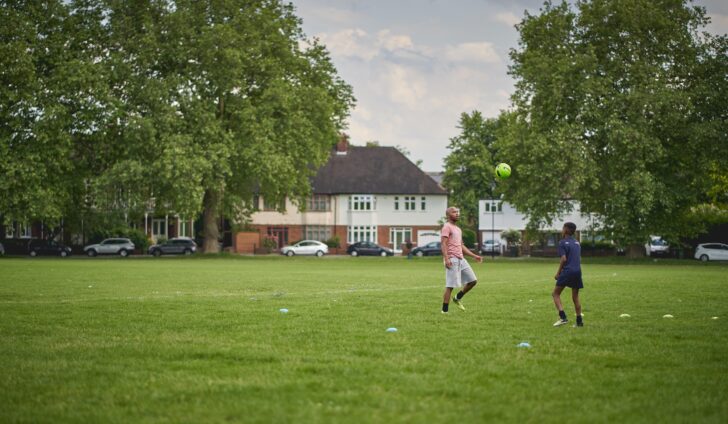
Local Green Spaces are designated in a local authority’s local or neighbourhood plan, but it requires engaging with the planning process in a way that many people can’t or don’t know how to do. CPRE believes that addressing knowledge gaps in interacting with the planning system, as well as the many barriers people in deprived communities face, can make protecting our precious green spaces easier. Local green spaces are there for everyone to enjoy but this can’t happen if local people aren’t empowered and have the resources to do so.
Scrutiny in NDMPs
After months of hard work, collaboration, and perseverance, our role in improving National Development Management Policies (NDMPs) in the Levelling Up Bill has come to an end.
NDMPs cover how land is used across the country and without our involvement, they could have undermined how local powers make decisions on issues like affordable housing, the Green Belt and transport. If you’ve been with us for a while, you might know that we are passionate about local democracy and planning. By scrutinising the Bill, we were able to ensure that the public is consulted on any new national planning policies unless in exceptional circumstances.
The Levelling Up Bill has now become an Act, but our work to promote the countryside’s voice continues. If you want to learn more about our NDMP work, read our former campaigns officer Mark Robinson’s reflective piece here.
Rural Affordable Housing
We didn’t let up as 2023 came to an end, unveiling our first-of-a-kind report ‘Unravelling a crisis: the State of Rural Affordable Housing in England‘. This new research disclosed the chronic shortage of affordable housing, shocking 89-year-long social housing waiting lists, and the damage caused by short-term lets and second homes. Through both the report and our reception launch speeches, we have emphasised the lived experiences of social and affordable housing tenants and their significance in the policymaking process.
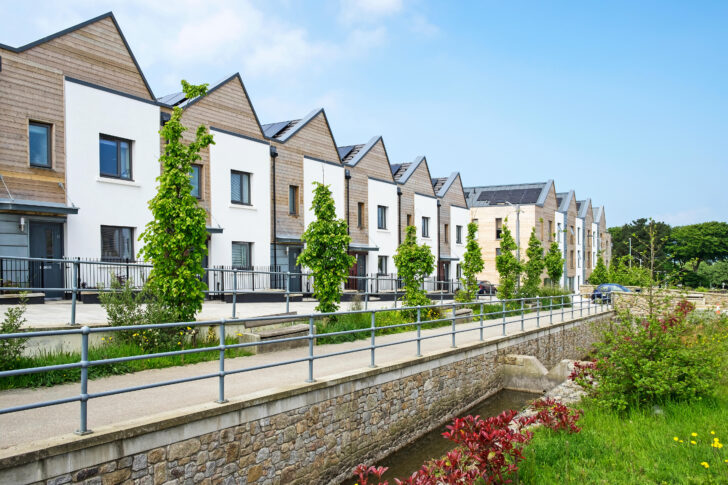
Earlier in the year, we co-funded a piece of research that uncovered the hidden homelessness crisis in our countryside. Rural local authorities receive 65% less funding through the Homelessness Prevention Grant than urban areas. The brutal reality of rural homelessness is shocking and the need for urgent action is ever-increasing.
Our campaign is only getting started but we are committed to improving the livelihoods of people in rural areas. We are calling for a redefinition of affordable housing to directly link it to local incomes, supporting local communities in delivering small-scale developments to suit their housing needs, and increasing the minimum requirements for genuinely affordable housing targets – among many other recommendations to solve the severe housing crisis.
More to come
If you’re still not convinced by the great work we’ve done this year, check out our manifesto for what we’re determined to achieve in the run up to the general election. But we can’t do this without you. With your support, we will start 2024 stronger than ever and we will contribute to a thriving and sustainable countryside, with resilient and affordable homes, and flourishing communities. Donate or become a member to help us achieve even more in 2024.
We have planted seeds of positive change this year. Stay in touch to watch them grow with us.




